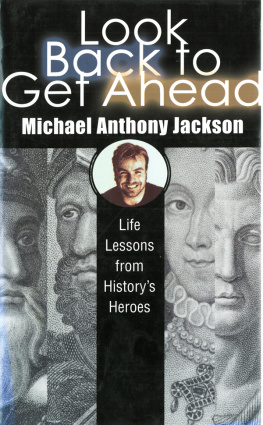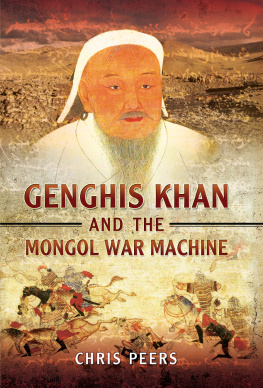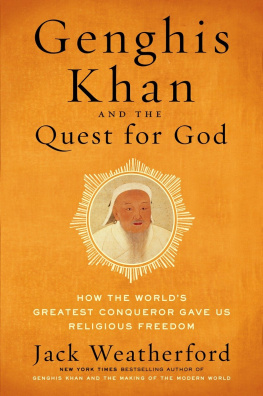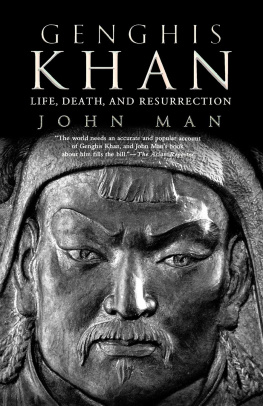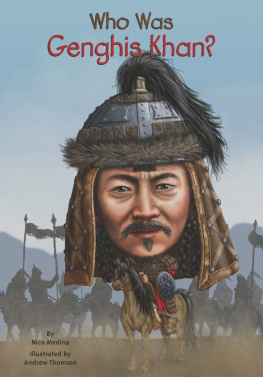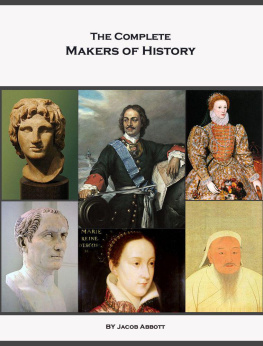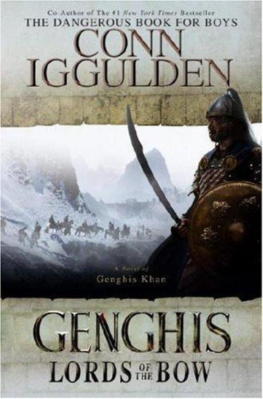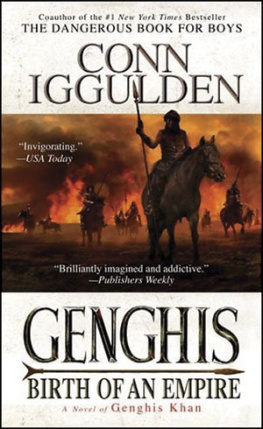1
Alexander the Great
S ECTION O NE: H ISTORY
Child of the Gods
Alexander the Great stands like a colossus in history, the last great Greek hero in antiquity. The undefeatable golden boy who conquered most of the known world in his twenties, died at thirty-two and inspired a legend that would last for ever. He is said to be the greatest secular figure in history, whose influence structured the chain of events that formed the world as we know it, from the cultural foundations of the West to the spread of Christianity and later Islam. He created the worlds first single-currency trading empire, founded over seventy cities and was the first leader ever to have a concept of one world. There are so many lessons that we can learn from his brief and heroic life, and his legend is as compelling for us today as it was for the historical giants such as Napoleon and Julius Caesar who cited him as a major inspiration and tried throughout their great lives to emulate him.
Little Dreamer
Alexander III of Macedon was born in 356 B.C. in Macedonia (present-day Thesalonika in northern Greece), the child of King Philip II and his wife, Queen Olympias. The belief in gods as real entities was a part of everyday reality in the ancient world and Alexander was taught that he was descended through his father from the Greek hero Heracles (Hercules) and through his mother from Achilles, the mythical champion of the Trojan War. In secret his deeply religious mother would tell the young Alexander that his real father was in fact Zeus, the father of the gods. This childhood belief, coupled with the validation that he received later in his life, took on such a profound significance within him that as an adult he even began to refer to King Philip as my so-called father.
As well as his powerful self-image, Alexander was to be given more than just a vague belief that he was special and destined for greatness, he would receive the inspiration and education that would actually help him to achieve it. It was this unique education that was to give direction to his desires and inspire within him the heroism and superhuman deeds that were to make his name legendary.
At School with Aristotle
The fact that Aristotle was Alexanders boyhood teacher only heightens our impression that he was someone divinely ordained for greatness. It is incredible for us to think that these two men, who would have such a colossal impact on the world, were actually teacher and pupil. Aristotle was without doubt the single greatest influence in Alexanders life. They became very close, so much so that Alexander said that Aristotle was like a father to him. He also said that although his natural father King Philip had given him life, Aristotle had taught him how to use it. Alexander would reward his tutor in a way that neither of them could have imagined: the education that Alexander received helped him to found a Greek empire that enlightened the ancient world and so allowed the ideas of Aristotle to become widespread, gain prominence and change the world, influencing thought to the present day.
Of all the knowledge that Alexander received from Aristotle, there was one gift that he gave him that would have a greater impact on him than anything else and would be largely responsible for his greatest acts of daring and heroism, a simple annotated copy of Homers Iliad, the story of Achilles and the Trojan War. So enthralled was the young Alexander with the exploits of Achilles that he carried the book with him all the way across Asia and even slept with it under his pillow every night.
It seems that as Alexander read the pages of the Iliad as a child, he made a pact with the gods that he, like his hero Achilles, would rather trade a long and comfortable life without glory for a short and arduous one that would secure his place in the pantheon of the gods.
In 337 B.C., Alexanders father, King Philip, was brutally assassinated, making Alexander aged only twenty-one, the unopposed ruler of Greece. That is where the story could have ended. But Alexander yearned for an arena worthy of him within which he could prove himself and in 337 B.C. challenges did not come any bigger or harder than that of the Persian Empire. So, soon after he assumed the throne, Alexander announced a plan that was greeted with both laughter and amazement in all the city states. He was going to fulfill the long-held dream of his father and invade and conquer the Persian Empire of the Great King Darius II, the greatest land empire the world had ever seen. Persia, the superpower of the ancient world, whose lands stretched from Turkey to Afghanistan and upon which the sun never set. An empire that had literally millions of soldiers at its disposal and enough gold to hire elite Greek mercenaries in their tens of thousands to crush anyone who dared oppose them. The plan was insane, but Alexander was convinced he could do it. In 334 B.C., with an army of only 44,000 men, he set off to embrace his destiny and change history.
The Battle of the Graniens334 B.C.
At first nobody in Greece or Persia took the threat seriously. Darius had a large army stationed close to where Alexander landed and could have been waiting for him, but instead he allowed the Greeks to land. He then assembled a force of about 40,000 men and positioned them along the banks of the River Granicus. Their plan was simply to stop Alexander from crossing, give him a bloody nose and send him back to Macedonia with his tail between his legs. They were in for a surprise. The Macedonians arrived at dusk. Parmenio, a highly experienced general, who had been one of Alexanders fathers right-hand men, advised Alexander to attack in the morning. He urged caution as the river was wide and the muddy banks upon which the Persians were lined very steep, but Alexander, replied that he would be ashamed of himself if a little trickle of water like this were too much and decided to seize the initiative and attack immediately.
Alexander, wearing a distinctive double white-plumed helmet, white cloak and shield, led the cavalry attack himself and by sheer force of will, under a shower of arrows and javelins, managed to cut his way up the steep muddy banks of the opposite side of the river. The Persians broke before them and the highly professional Greek troops won the battle almost as soon as it had started. Alexanders excellent generalship combined with his audacious daring had won the first battle for Asia, but his courage nearly brought the campaign to an abrupt end when, in the thick of the fighting, Persian nobles converged on his distinctive figure and very nearly killed him. His advisers begged him to be more cautious but he could not resist leading from the front despite the dangers, or possibly even because of them.
Morale was high after the battle and the army traveled down the coast, occupying the Greek-speaking towns there. Most of them threw their gates open to the invaders, only too happy to be free from Persian rule. Then, when Alexander reached the city of Gordion, an incident occurred so memorable that its name has entered the English language.
The Gordian Knot
Earlier in his career, Alexander had been keen to court the favor of the gods and receive validation of the possibility of the success of his campaign. Before he left for Asia he had consulted the famous Oracle at Delphi. However, on the day he arrived in Delphi the prophetess was not seeing pilgrims.
He sent a message asking if she would make an exception for him but she adamantly refused. Unperturbed, Alexander found her and attempted to drag her to the shrine. Impressed by the passionate young man in front of her, she exclaimed, You are invincible, my son. Little did she realize the vast consequences her encouragement would have.

